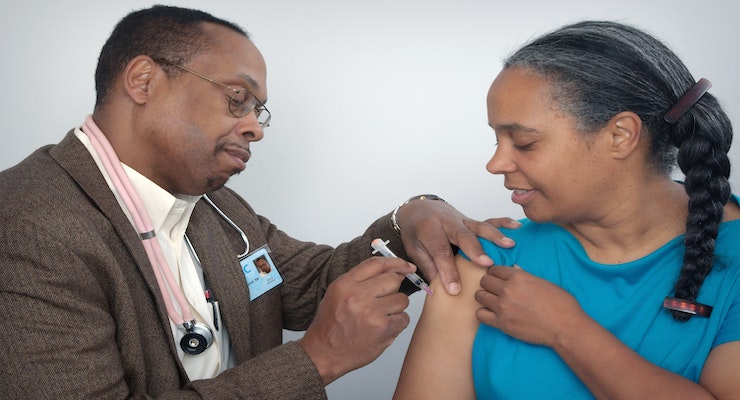It’s not uncommon for women to spend so much time taking care of everyone else, they forget about themselves. But during the menopause it is more important than ever to make sure your care comes first.
The menopause, or rather the perimenopause, causes huge changes to take place in the body. The ovaries stop producing estrogen meaning eggs are no longer released in a monthly cycle. This doesn’t happen overnight – it is a more gradual process usually taking place over several years.
What happens during the menopause?
This fluctuation of hormones can cause all sorts of symptoms and while no two women experience the menopause in quite the same way, most will feel the effects to some extent.
Hot flashes and night sweats, for example, can be experienced as anything from a mild discomfort to almost debilitating occurrences.
Mental health can be affected in a range of ways from mood swings to depression and anxiety. Reduced concentration and poor memory are also experienced by some women.
Periods can become unpredictable – spotting between periods, heavy periods or skipped periods are all fairly common.
It can also disrupt sex life with symptoms such as vaginal dryness, reduced libido and a lessening of enjoyment all playing a part.
At the start of perimenopause, many women don’t immediately realize what is happening, so if you have been suffering with any of these symptoms, why not take the premenopause quiz to find out if that could be the cause.
How can self-care help?
The good news is, many of the symptoms can be controlled by taking better care of yourself, and that puts you in a much better position to then take care of others.
Having a healthy, balanced diet is important – make sure you’re eating three meals a day and include lots of fruits and vegetables as well as foods rich in calcium, vitamin-D and phytoestrogens, such as seeds and beans.
Reduce the amount of sugary and processed foods you eat and cut back on alcohol and caffeine and, of course, if you smoke, there’s no better time to quit than right now.
Keeping active is another sensible idea. If you’re not the type who enjoys going to the gym every day, a dance around the kitchen for half an hour can be just as beneficial.
Getting quality rest is also extremely important especially if your sleep is being disrupted. Make up for it by getting an early night, sleeping in later, or taking periods of rest throughout the day.
To help control a hot flash when it arrives, make sure you dress wearing layers so you can take a few off if necessary. Why not treat yourself to a few new pieces made from breathable natural fibers.
Meditation or mindfulness will give you an opportunity to stop and just breathe for a while. Breathing techniques can also help with hot flushes and taking the time to sit peacefully can also have a positive effect on your mental wellbeing too.
It’s worth remembering that self-care doesn’t mean you don’t help others, it simply means you concentrate on looking after yourself first before you seeing what you can do for everyone else. It makes good sense, especially during the rollercoaster that is the menopause.

Sylvia Browder is CEO of Specialty Home Services LLC, a Home Improvement Company; a Small Business Consultant at Browder Consulting Group, a startup consultancy firm to help women with startup assistance, marketing, website and graphic design work and other support services. In addition, she has co-authored several published books; publisher of ‘Sylvia Browder’s Blog for Women Entrepreneurs’ a lifestyle blog; and publisher of ShopSpendBlack.com Business Directory & Blog platform created to help consumers find black owned businesses in a searchable format. In her spare time, she enjoys spending time with her husband of 30 years; 5 adult children and 5 grandchildren; church; friends and motorcycle riding.
















